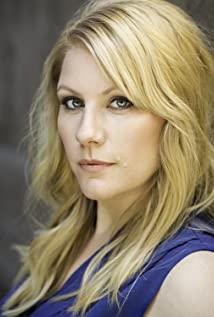Refused to reprint, um.
One, an old story
The first time I came into contact with social workers after entering the university was when I participated in the hospice care activities of the club. The atmosphere in the nursing home is full of people but still looks desolate, and the meaningless whispers of the disabled old people on and off left a deep impression on me, but what I remember most is the one I witnessed. Visits by classmates.
The object of her care is a 100-year-old grandmother who is still conscious but has a fractured right leg that has not healed within a year (in fact, everyone understands, including herself, that fractures at this age will not heal). When we chatted with her she suddenly moaned softly and told us that her legs hurt. We wanted to call the nurse, but the grandmother said it was useless, "This nurse is a murderer." Grandma said she wanted to call home, and said several times, and said repeatedly that her legs hurt. What should I do if my leg hurts? The girl at the same level burst into tears, took out her mobile phone, and dialed the phone according to her grandmother's words. Unexpectedly, the centenarian actually remembered the correct number. Her daughter answered the phone, and the two hung up after talking for a few minutes, and her grandmother stopped crying. If things ended here, it would be considered a success, but the nurse heard a little bit and seemed a little angry, saying why she had to call home, her daughter is also an old man in her 70s, what's the use of calling, and the painkillers have been taken, What can she do before the next time to take the medicine. At this point visitation time was over and we left the nursing home.
I also don't know whether what this female student did is right or wrong. She insisted on her own moral judgment, but is the result good? For herself, she had never been exposed to aged care, was afflicted by the pain she felt, resented the lack of humane care in nursing homes, and killed her enthusiasm for participating in hospice care (I have never seen one in a nursing home since then). passed her). For the elderly, her temporary needs are met, but we still have no way of knowing how disaffected nurses will treat her in the future. For nurses, taking care of six or seven elderly people alone is already a huge workload. What’s more, nursing homes can only provide such uncaring services. Is it good or bad for us to interfere and accuse them of their moral level?
And the deepest question is: Do we measure social workers by our own moral standards, or do we pursue professional service levels? When we turn to social workers, do we want to turn to them for resources, care, or something deeper?
Second, "Stuart: Rewinding Life"
assumes that if a middle-aged homeless person has multiple drug addictions, alcohol addictions, a dual personality with hallucinations and delusions, and a criminal record of stabbing others many times, a standard What will the social union do?
Helping him detox from drugs and alcohol, and help him get on a normal life track, is naturally the standard answer, but the problem lies in the method. When we transform this homeless person with specialized tools such as professional management and various psychological and family therapy theories and techniques, have we controlled and excluded personal subjective feelings, value considerations, and emotional prejudices?
British author Alexander Master wrote a book "Stuart: Rewinding Life" based on his personal experience, in which the protagonist Stuart is such a tramp, a thief, hostage-taking, mentally ill, anti-social street ronin, But the author, Alexander, formed a complicated friendship with Stewart as a social worker, and used Stewart's life to write a documentary about the British tramp who enjoys a perfect welfare system in the context of civilization in the 21st century.
I can't judge the author's professional level as an amateur social worker, but it is because the authorities are obsessed with bystanders. From the author's relationship with Stewart, I see a lot of things that can explain my confusion.
The author's attitude towards Stewart is never biased, he neither says Stewart's drug addiction is bad nor good, he doesn't seem to care about Stewart's choice, but Stewart trusts him the most, and with his help Stewart It's really on the right track. On the surface, he seems to fit the description of a cold-blooded care worker, but assuming that he is really a social worker with the principle of prudence and self-preservation, Stewart, who has a bad track record and is gloomy and grumpy, will not maintain close contact with him.
Going back to the incident at the beginning of the article, I thought that the main reason for the dispute was "A's honey, B's poison". As the paper I read said, the so-called well-being of the girls at the same level is true for the recipients. Is well-being rather than the wishful thinking of social workers? How to intervene and what kind of intervention effect is considered to be the best effort for the well-being of the recipient?
Third, the morality of social workers
vagabonds, thieves, mentally ill, anti-social.
We can label Stewart that way, but we can't act on it alone. I remember the principle of social workers is not to evaluate, not to judge. We are not arbiters but moral practitioners, and we cannot be left untouched by ourselves. To quote the words in the literature again: the feelings of pushing oneself and others not only need to be deeply understood at the intellectual level, but also need to be communicated with each other at the perceptual level. This means that social workers need to have an understanding of the beneficiary and his life world before they can comprehend, consider and speculate on the other person's various states of mind and what is good for the other person.
Are there contradictory feelings behind the viciousness?
An aggressive person is not burdened with repression, he will speak his mind openly regardless of angering others, and he feels himself to be a strong, honest and realistic person. Based on his own starting point, his self-assessment is perfectly logical. In his life from childhood to adulthood, ruthlessness is the power to live well, not caring about others is honesty, pursuing goals at all costs is the law of reality, and doing whatever you want is a good life. He considers himself honest, and there is another reason: he can pinpoint the hypocrisy of the people around him. He has been exposed to too many injuries in the name of goodness, so he believes that the passion for the cause, the heart of charity and so on are all in disguise. And it makes sense for him to reveal the true face of those "public spirits" or "religious virtues," given that he himself is a victim. His values are based on the strong prey on the weak, and power is the truth. Let kindness and forgiveness go to hell - all people are wolves!
From this perspective, we can understand that Stewart is also a victim, we can appreciate the author's kindness, and we can understand the essence of social work:
moral practice.
It is impossible to deeply understand the plight of recipients without involving social workers’ awareness of self-reflection and self-criticism. Reflection in this sense is rich in moral practice, and this is the core activity of social work. , and it is this characteristic that distinguishes social work from other professions that only emphasize science and technology. The implementation of values, the practice of morality, and the reason why social workers are social workers, is probably the meaning of this.
Fourth, at the end of the remarks,
I return to the question at the beginning: when we turn to social workers, what are we looking for?
We turn to a character who can identify with our subjective feelings, emotional prejudices, moral and ethical considerations and struggles that may not be objective, and defend our inalienable dignity and worth from the bottom of our hearts.
View more about Stuart: A Life Backwards reviews











